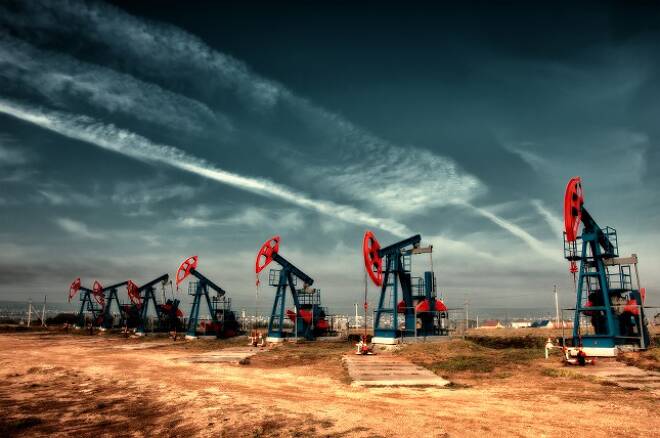Advertisement
Advertisement
4 Commodities for 4 Seasons
By:
Intro
The lifecycle of commodities play a role in the performance of many commodities that are produced globally.
While crude oil prices are driven by the supply of crude oil and the demand for products such as gasoline and heating oil, grains experience their greatest volatility ahead their harvests. Coffee prices are affected by weather in the areas that produce coffee beans, and natural gas is mostly affected by the weather in the United States.
Commodities are the lifeblood of many economies throughout the globe, driven by the demand for food and energy. The supply and demand for food and energy increases as global growth climbs, and declines when global GDP contracts. The changes in global economic cycles plays an important role in driving the demand for food and energy commodities, but during these cyclical changes, there are seasonal changes that drive price and volume changes.
Crude oil prices are the largest component of energy throughout the globe. Crude oil is considered fungible, meaning that oil with similar gravity and sulfur content will have the same price in any location around the globe, if one accounts for transportation and currency fluctuations. Crude oil price live can be found using a plethora of reputable web sites and newspapers.
While crude oil prices fluctuate on a cycling nature with growth, along with supply constraints, there are seasonal tendencies that help reflect the change in WTI oil prices. WTI oil or West Texas Intermediate Oil, is priced in Cushing Oklahoma in the United States. The prices are partially drive by changes in the demand for products such as gasoline and heating oil.
A chart of the seasonal movement of crude oil can be viewed in the season chart of WTI crude oil. This seasonal chart shows you the returns experience by WTI crude oil over the last 20-years broken down by the performance return per month. The chart shows the best historical performance during the winter months in the Northern Hemisphere and the summer months in the same location. The winter month performance is driven by demand for heating oil, while the summer months are a function of strong demand for gasoline.
The weakest months are the spring and the autumn when the weather is moderate and gasoline demand dips. Refiners generally perform their maintenance during the spring and summer months in the Northern hemisphere which provides for the backdrop of lower average performance.
While natural gas is a global product, by far the most liquidity is provided in the United States. Natural gas is priced all over the U.S. with the bulk of liquidity in Henry Hub Louisiana. The performance of Natural gas also has seasonal tendencies. As you can see from the 20-year performance of natural gas there is positive average price performance during the end of the winter in the norther hemisphere as inventories decline. Additionally, there are seasonal increases in performance and volatility during the later stages of the hurricane season in the United States.
The bulk of the supply of the grain markets reside in the United States, and in Brazil and Argentina. The grain market is driven by seasonal factors with the harvest in the United coming in October and November and the South American harvest coming in the Southern hemisphere’s autumn. As weather changes the perception of yields in these regions, prices will fluctuate.
Most of the worlds coffee is produced in South America and Western Africa. There is a similar aspect to the seasonal swings in coffee. As weather effects the change in production in South American and Western Africa, the price of coffee will experience volatility.
Understanding the seasonal changes in commodities and when prices are likely to experience a seasonal change due to weather, increasing demand, and supply, is an important component of understanding the lifecycle of commodity trading.
About the Author
David Beckerauthor
David Becker focuses his attention on various consulting and portfolio management activities at Fortuity LLC, where he currently provides oversight for a multimillion-dollar portfolio consisting of commodities, debt, equities, real estate, and more.
Advertisement
